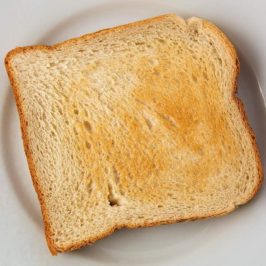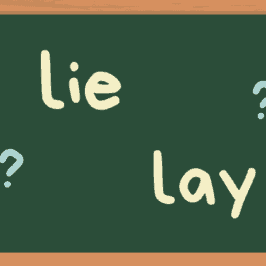
When do you use commas before names? How about after them? And what about commas before titles of books or films? All will be revealed!
When I first started editing, I used to Google (other search engines are available) when to use commas before names ALL THE TIME. Now that it’s firmly lodged in my brain, I want to share the knowledge.
There’s a fancy name for a noun or pronoun that follows another noun or pronoun and explains it or repeats it in a different way (e.g. Your sister, Lisa…)
These are known as ‘appositives’ (i.e. ‘Lisa’ in the example above). You don’t need to remember this term, but if you’re a word person, I thought you might like to know.
APPOSITIVE: A fancy name for a noun or pronoun that follows another noun or pronoun and explains it or repeats it in a different way (e.g. "Your sister, LISA") Share on XThe theory (easy, I promise!)
Appositives require commas before them, and after, too, unless they’re at the end of a sentence.
Stay with me. These examples will make it clearer:
- My youngest uncle, Charles Dickons, was always having to spell out his name. (Appositive = Charles Dickons)
- Her favourite book, The Wind in the Willows, is a children’s classic. (Appositive = The Wind in the Willows)
If the second noun isn’t an appositive, that is, if it doesn’t refer to the exact same thing as the preceding noun, a comma shouldn’t be used.
Still here? Great! It’s about to get even clearer.
Read on for specific examples that use people’s names and titles of works.
Comma before and after someone’s name
Consider the following sentences, which are both correct depending on the context:
- My sister, Harriet, has a brilliant sense of humour.
- My sister Harriet has a brilliant sense of humour.
In the first sentence, the speaker has only one sister, whose name is Harriet. The sister and Harriet are the same person. The sentence would still have the same meaning if the name between commas (the appositive) were removed.
In the second sentence, the speaker has more than one sister. If the noun “Harriet” were removed, a vital piece of information would be lacking as we wouldn’t know which sister has the brilliant sense of humour. “Harriet”, therefore, is not an appositive here, so no commas should be used.
Try these:
- I saw my best friend, Jane, yesterday.
- I saw my friend Jane yesterday.
The first one uses an appositive (Jane), as the writer has a single best friend, so commas are needed.
The second doesn’t contain an appositive, as the writer is likely to have more than one friend.
Comma before and after a book title, film title etc
Take a look at the following two sentences, one of which is incorrect. Can you work out which one?
- The French film Les Enfants du Paradis was made in 1945.
- The French film, Les Enfants du Paradis, was made in 1945.
Worked it out? Yes, the second one is wrong, as there is not only one French film in existence. Les Enfants du Paradis is not an appositive in this sentence.
How about this pair?
- Remember that book you lent me last October, Our Mutual Friend?
- I’ve read the book Our Mutual Friend.
Both are correct. The first one uses an appositive (Our Mutual Friend), as there is only one book that was lent last October, so a comma is needed.
The second doesn’t contain an appositive, as there is more than one book in existence, so no comma is needed.
Quiz – Commas before names
Now that you’re a ninja at knowing when to put a comma before a name, test your knowledge with this five-question quiz!
Can’t be bothered to learn this stuff?
You don’t have to! I can do it all for you. Take a look at my editing and proofreading services.










Sally M. Chetwynd
Just wondering if Min Jee Lee might have authored more than one book – there’s no way of knowing from the sentence alone. If yes, my answer would have been correct. This would be tricky for an editor, who wouldn’t necessarily know; the author would (or should) know, in order to punctuate the sentence correctly in the first place.
Debbie Emmitt
Hi Sally, you’re 100% correct and I’ve now amended that particular quiz question to avoid any confusion. For others: Sally was referring to a question in the quiz that was ambiguously worded (my bad!): ‘”Have you read the book, ‘Pachinko’?, by Min Jin Lee?” Is this sentence correctly punctuated?’
As Min Jin Lee has written more than one book, this sentence is incorrectly punctuated as the quiz confirmed. This is because if you remove the text between commas, the reader would have no way of knowing which of the author’s books is being referred to. The correctly punctuated sentence would be: “Have you read the book ‘Pachinko’ by Min Jin Lee?”
However, as Sally points out, this is knowledge that we don’t have without a bit of research or prior knowledge, therefore I’ve amended the quiz question to not include the name of the author. Thanks, Sally!
Annie dexter
Ok, im just being a stickler, and it has nothing to do with appositives, but this sentence from your quiz isnt correctly punctuated, right? You have it as, “Last night I watched the film ‘Titanic’.” It seems there should be a comma after the introductory phrase. It would instead be, “Last night, I watched the film ‘Titanic’.” I’m also curious about something in the following sentence you wrote. “If the noun “Harriet” were removed, a vital piece of information would be lacking…” Shouldn’t you have used ‘was’ instead of ‘were’ since the sentence isn’t referring to any information that is plural? I’m always trying to learn more, and you seem like someone who has tons of useful information, so I want to pick your brain.
Debbie Emmitt
Hi Annie, thanks for the questions! Here are the answers:
1. Comma after ‘last night’ at the start of a sentence: This is optional. Short introductory phrases like this don’t need a comma, unless dictated by a particular style guide or if the meaning is unclear without it. So, ‘yesterday’, ‘today’, ‘last week’ etc don’t require a comma.
2. ‘Were’ vs. ‘was’. The use of ‘were’ in the sentence you quoted is an example of the passive voice, as opposed to the active voice. In everyday speech, we tend not to use it, so we say, “If I was rich…” Strictly speaking, this is incorrect (but so common that it sounds correct!). If you’re writing dialogue in fiction, you can use the active voice in this construction to make your characters sound more realistic (unless they’re posh…), but the proper way to phase it is to use the passive.
Hope this helps!